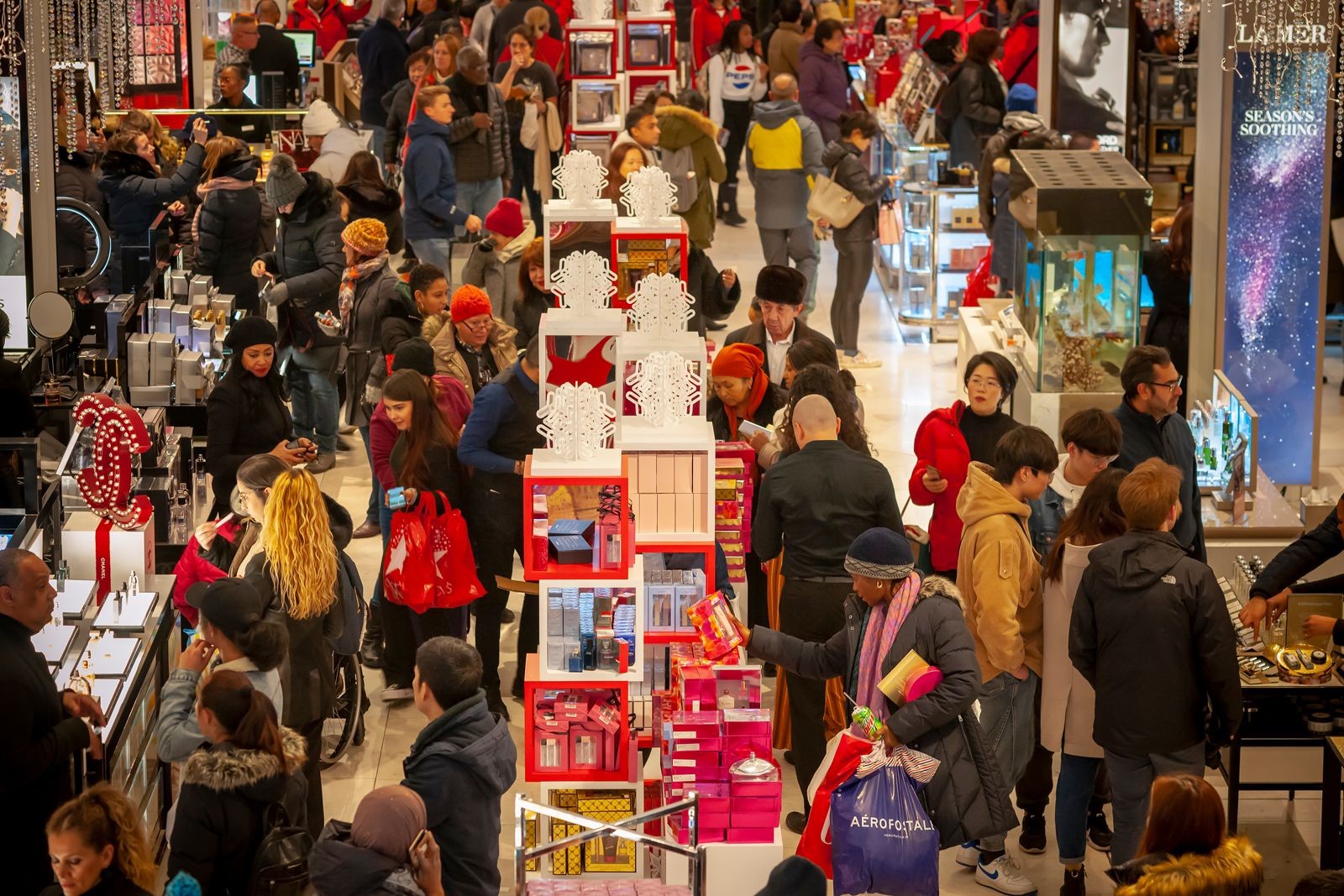Black Friday, the day after Thanksgiving, has become synonymous with massive shopping sprees and incredible deals in the United States. Millions eagerly anticipate this day to snag discounted items, both online and in brick-and-mortar stores. But amidst the excitement, a question often arises: Why Do They Call It Black Friday? The name itself sounds somewhat ominous, especially for a day associated with festive holiday shopping. Let’s delve into the real story behind the moniker and debunk some common myths.
Many believe the term “Black Friday” is tied to retailers finally turning a profit for the year. The idea is that businesses operate “in the red” (at a loss) for much of the year and that the day after Thanksgiving marks the turning point when holiday sales push them “into the black” (profitable). This narrative, while appealing, is actually a popular misconception. The true origin of the name is much more grounded in historical context and urban chaos.
 Crowds of shoppers at Macy's Herald Square in New York City on Black Friday in 2018
Crowds of shoppers at Macy's Herald Square in New York City on Black Friday in 2018
The phrase “Black Friday” actually emerged in Philadelphia during the early 1960s. It wasn’t coined by retailers or marketing teams, but rather by the Philadelphia police department. Each year, the day after Thanksgiving marked the unofficial start of the Christmas shopping season and coincided with the annual Army-Navy football game held on the Saturday following Thanksgiving in some years. This combination resulted in a massive influx of suburban tourists descending upon Philadelphia.
The city would be overwhelmed with traffic jams caused by shoppers and football fans, leading to overcrowded streets, numerous accidents, and a spike in shoplifting incidents. For the Philadelphia police, it was a day of absolute mayhem. They began to refer to this chaotic day as “Black Friday” because of the sheer pandemonium and headaches it caused them. Police officers faced longer shifts and had to deal with a multitude of problems arising from the overwhelming crowds.
Over time, the term “Black Friday” stuck within Philadelphia. Local merchants, however, weren’t thrilled with the negative connotation. They attempted to rebrand it as “Big Friday” to put a more positive spin on the lucrative shopping day, but the original, somewhat darker name had already taken root.
It wasn’t until the late 1980s that the “Black Friday” term started to spread nationwide. Interestingly, this wider adoption coincided with retailers popularizing the “red-to-black” profit myth. By associating “Black Friday” with the idea of stores finally becoming profitable and framing it as the biggest shopping day of the year, merchants successfully transformed the term’s perception. While it’s true that Black Friday is a significant shopping day, historically, the Saturday before Christmas often saw even larger sales volumes.
Today, Black Friday has evolved into a cultural phenomenon, marking the start of the holiday shopping season. It has also spawned related shopping events like Small Business Saturday, encouraging support for local businesses, and Cyber Monday, focusing on online deals. Even Giving Tuesday has emerged as a counterpoint, promoting charitable donations after the shopping frenzy.
Interestingly, “Black Friday” also carries a completely unrelated, darker historical meaning. In 1869, it referred to a catastrophic financial crash when Wall Street speculators attempted to corner the gold market, leading to widespread bankruptcies. This “Black Friday” on September 24, 1869, serves as a stark reminder of the term’s potential for negative connotations.
However, when we talk about “Black Friday” today, we are predominantly referring to the shopping holiday after Thanksgiving. So, why do they call it Black Friday? It’s a name born not from retail optimism, but from the chaotic reality faced by Philadelphia police dealing with overwhelming crowds decades ago. While the “profit” myth persists, the true story of “Black Friday” is a fascinating glimpse into urban history and the evolution of holiday shopping traditions.
